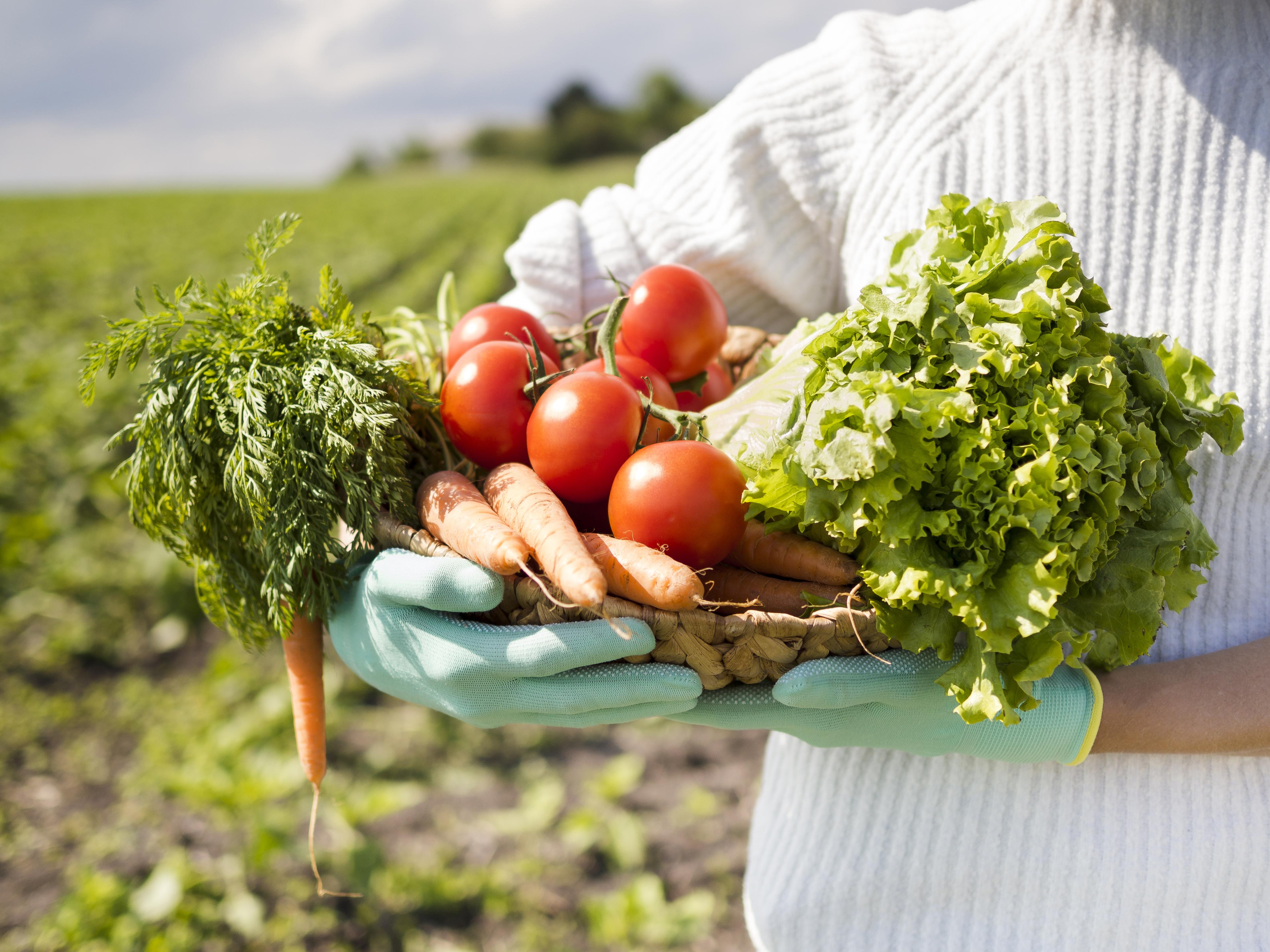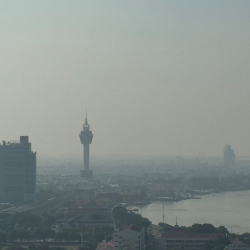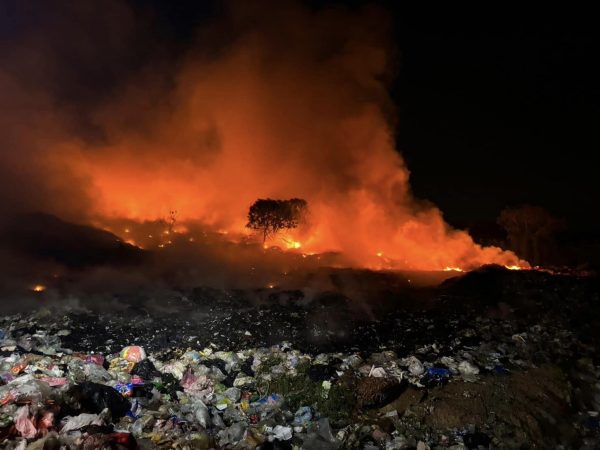Is organic farming the solution to Thai school lunch crisis?

Two problems plaguing Thailand – unhealthy meals for schoolkids and farmers threatened by volatile food prices and climate change – have a simple win-win solution, say experts.
By collaborating with local farmers, schools can get fresh and pesticide-free organic food for their students at a reasonable price, ensuring that the farmers earn a stable income.
It may sound too good to be true, but a project in the Northeast is proving otherwise and could serve as a national model.
Success story in the Northeast
Students in Surin’s Chom Phra district are now being served a hearty school lunch made from locally grown organic vegetables every day. This meal provides them with the nutrition they need for healthy physical and mental development.
But the Chom Phra students are among the lucky few. Many of their peers across Thailand still have to be satisfied with small servings of relatively poor-quality food that may be stunting their development.
Chinda Phromtha, a dentist at the Lamduan Hospital who has overseen the school lunch program in Chom Phra from the start, attributes its success to close collaboration between district schools and local farmers.
“Initially, we faced the same problems as other schools – our students did not have good, healthy food for lunch. Meanwhile farmers in our district were always suffering financial instability from fluctuating food prices.
“So, in 2014, we began coordinating with local farmers of organic produce to cater to local schools – and it worked!” Chinda said.
Every semester, all 40 schools in Chom Phra district provide farmers with an estimate of the amount of food they will require over the entire semester. This way, farmers can plan how much they should produce in advance.
“The outcome of this partnership has been astounding: Not only are more than 5,000 students in local schools eating healthier meals, but it is also helping communities earn more by selling their organic produce to us,” she said.
The program is also greatly benefiting the campaign to promote organic farming practices, as farmers know that they will always have regular customers for their organic produce, she added.
Unsafe food and intensive farming
Despite a few good examples like the Chom Phra program, the poor quality of food served in schools is a long-simmering national issue.
The problem has been blamed for eroding Thai children’s mental and physical development, as the food they are served in school is often of poor nutritional value, fails to meet their dietary demands and can be contaminated with pesticides and other chemicals.
Withoon Lianchamroon, director of BioThai Foundation, points to several signs that Thai students are being served unhealthy lunches. He said evidence indicates that the proportion of malnourished children is rising, while their IQ levels are dropping.
“This is clearly because these children do not get the nutrition they need for their growth, while the food they are served in school is contaminated with agrochemicals that inevitably affect their brain development,” Withoon said.
While a large number of students in Thailand are deprived of vital nutrients in their diet, farmers across the country are also suffering from an unsustainable food production system. This is because they are forced to opt for intensive farming and have to sell their crops cheaply to middlemen.
“Over the past decade, the government has been spending hundreds of billions of baht subsidizing the agricultural industry, yet the farmers are still poor. Every year, tonnes of vegetables and fruits are wasted, yet our children are served far fewer fruits and vegetables than they should be,” Withoon said.
Furthermore, he said that even though the government claims to be supporting organic farming, organic farmers still do not get enough backing. Meanwhile, their lack of access to markets also makes them financially unstable, which again deters others from switching to organic farming.
“With the world facing a climate crisis, our food production system is in great danger. We need to swiftly transform our food production to become more sustainable, by empowering local farmers’ capacity to shift from intensive, chemical-heavy farming to organic farming, which benefits not just consumers but also the entire planet,” he said.
Solution is collaboration
Sumeth Panchamlong from the Thailand Alternative Agriculture Network said he was very concerned about the state of school meals, pointing out that many students – especially those from poor families in rural areas – depend on their school lunch for nutrition.
“In this modern society, many families do not have time to prepare meals for their children, so they have to rely on school lunches. However, it turns out that the food served to children at school is often unhealthy and unfit to support their growth,” Sumeth said.
While studying food procurement by schools in Maha Sarakham province, Sumeth learned that most schools opt for cheap, low-grade ingredients that they can afford with their limited budgets.
In the 24 years since Thailand launched the policy of free school meals for every student in 1999, the school-lunch budget has risen by just 11 baht per head, according to BioThai Foundation. The budget currently stands at between 22 and 36 baht per head and has been unchanged since 2022.
Sumeth stressed that with such a limited budget, schools inevitably have to choose the cheapest available option on the market. And invariably, the cheapest available food is heavily contaminated with pesticides, which are unsafe for children. The only way to tackle this problem is to open the door to organic farmers.
“Local communities have a key role to play in ensuring that our children eat healthy at school. The only way we can be sure that the ingredients used in school lunches are toxin-free is if the school links up with local organic farmers. They should also work together to teach students how to grow their own food and become self-reliant,” he said.
“Given that we already have many models which prove that collaboration between local farmers and schools is achievable, it is tragic to see that most of our children still have to eat unsafe food, while many organic farmers are struggling to sell their produce.”
By Thai PBS World’s General Desk






